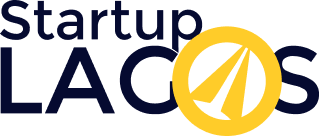Starlink Kit Imports Banned in South Africa as Users Confront Potential Service Disruption
Starlink a satellite internet constellation operated by American aerospace company SpaceX, which provides coverage to over 60 countries. It is yet secured an operational license, IT LEC has devised a solution for its customers. The Independent Communications Authority of South Africa (ICASA), the nation's telecoms regulator, has instructed IT Lec to halt the import of Starlink kits. Additionally, ICASA demands that the local ISP, based in Northern Cape, cease all active Starlink internet services for users within the country.
Even though SpaceX, the creator of Starlink, is still working on obtaining a license, IT LEC has managed to find a workaround for its clientele. However, ICASA has now issued a strong warning, urging the ISP to discontinue this workaround. ICASA's notice states, 'IT LEC (Pty) Ltd must cease acquiring, distributing, and facilitating the sale of any Starlink products in South Africa that offer satellite access to the Starlink services, within three days of receiving this letter.'
Three weeks ago, it was reported that South Africa was considered a low-priority region for a potential Starlink launch due to regulatory challenges. Nevertheless, some South Africans have managed to experience the product's groundbreaking internet speed. IT Lec has been importing kits that enable Starlink's roaming service to operate in South Africa. By providing users with an antenna and a router, they can access high-speed broadband internet. These kits reportedly carry a cost of R15,000, with an additional monthly charge of R1,799 for the roaming service.
South Africa's regulator disapproves of ISP SpaceX's activities, despite discussions with IT Lec. The satellite internet service's availability date was shifted from 2022 to 2023 due to a requirement in the Electronic Communications Act, which requires 30% ownership by historically-disadvantaged groups. Dawie de Wet, CEO of Q-KON Africa, believes that IT Lec's import of Starlink kits is not unlawful. He also explains that Starlink has a global constellation that will extend to every location unless business-related issues arise, leading to service restrictions.
IT Lec has adapted to the potential cessation of roaming services in South Africa by maintaining satellite internet access despite regulatory orders. The ISP's main customer base is in rural areas with limited broadband options. Instead of discontinuing the service, they redirected customers to Mozambique, using Mozambique's licensing agreement with Starlink as a hub to offer kits to other African countries.
Play audio








No comments